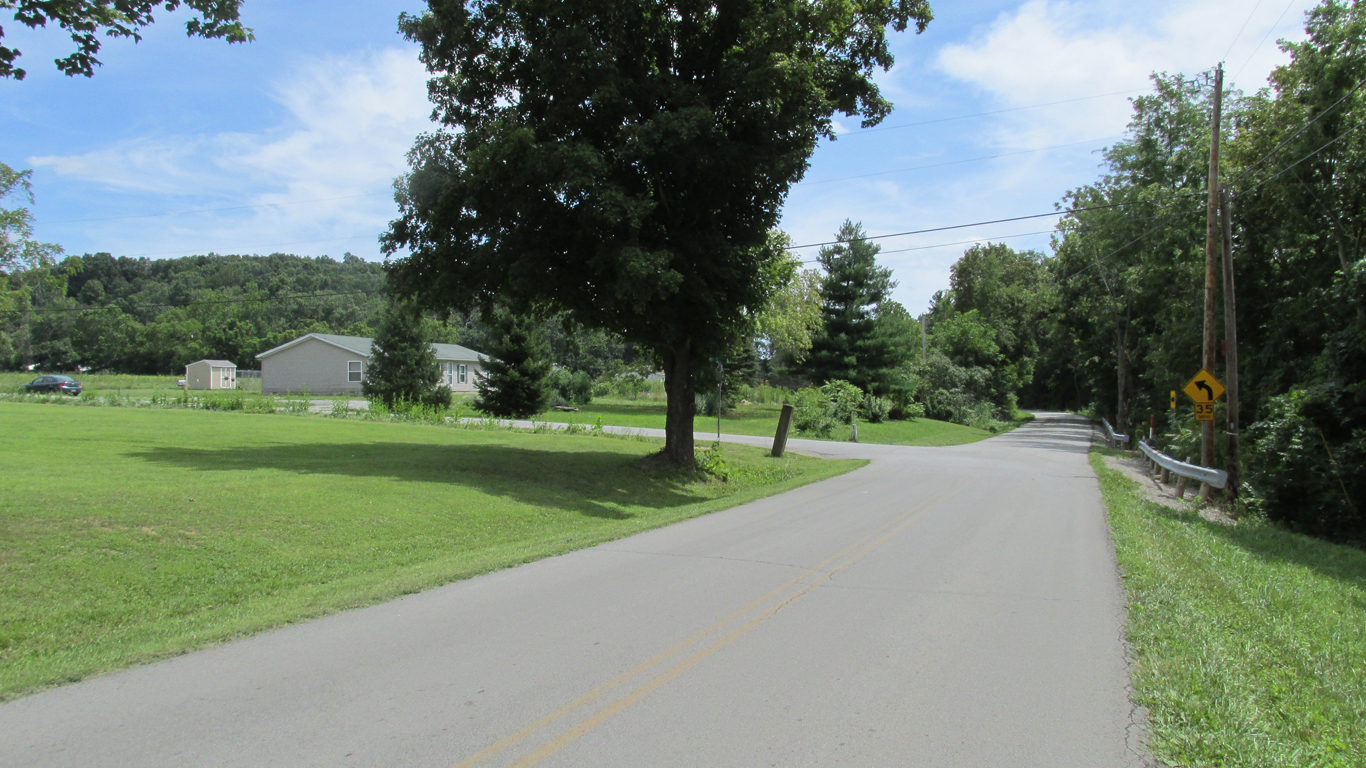
In 2000, according to the U.S. Census Bureau, the United States had a population of 281.4 million people. By 2020, that number had increased to 331.4 million. Almost every major city experienced substantial growth in that time, although the rates varied enormously.
Reviewing data from the U.S. Census Bureau’s American Community Survey, 24/7 Wall St. has tracked the population change in the nation’s 50 largest cities. (On a less granular lever, here’s how every state’s population has changed since 2010.)
Our list shows some very clear trends: explosive growth in parts of the South and Southwest, slower growth in the North, and decline in parts of the Midwest. These have likely been driven by a number of factors, including economic strength in the Sunbelt states; immigration, notably from Latin America; and varying demographic profiles, with aging baby boomers more concentrated in the North and Northeast.
The fastest growth came in Raleigh, North Carolina, where the population grew by 72.6% between 2000 and 2021, followed by Fort Worth, Texas, with 71.9% growth and Charlotte/Mecklenburg, North Carolina, with an increase of 60.4%. (See the fastest growing city in every state.)
Click here to see population growth since 2020 in America’s largest cities
Three cities in the Midwest and one on the Eastern Seaboard experienced declines. The population of Detroit fell a whopping 30.6%. That city has long suffered from a host of ailments, including deindustrialization, high crime rates, and flight to the suburbs. The population of Baltimore shrank 6.4%, Chicago dropped 5.4%, and Milwaukee was down 1.4%.
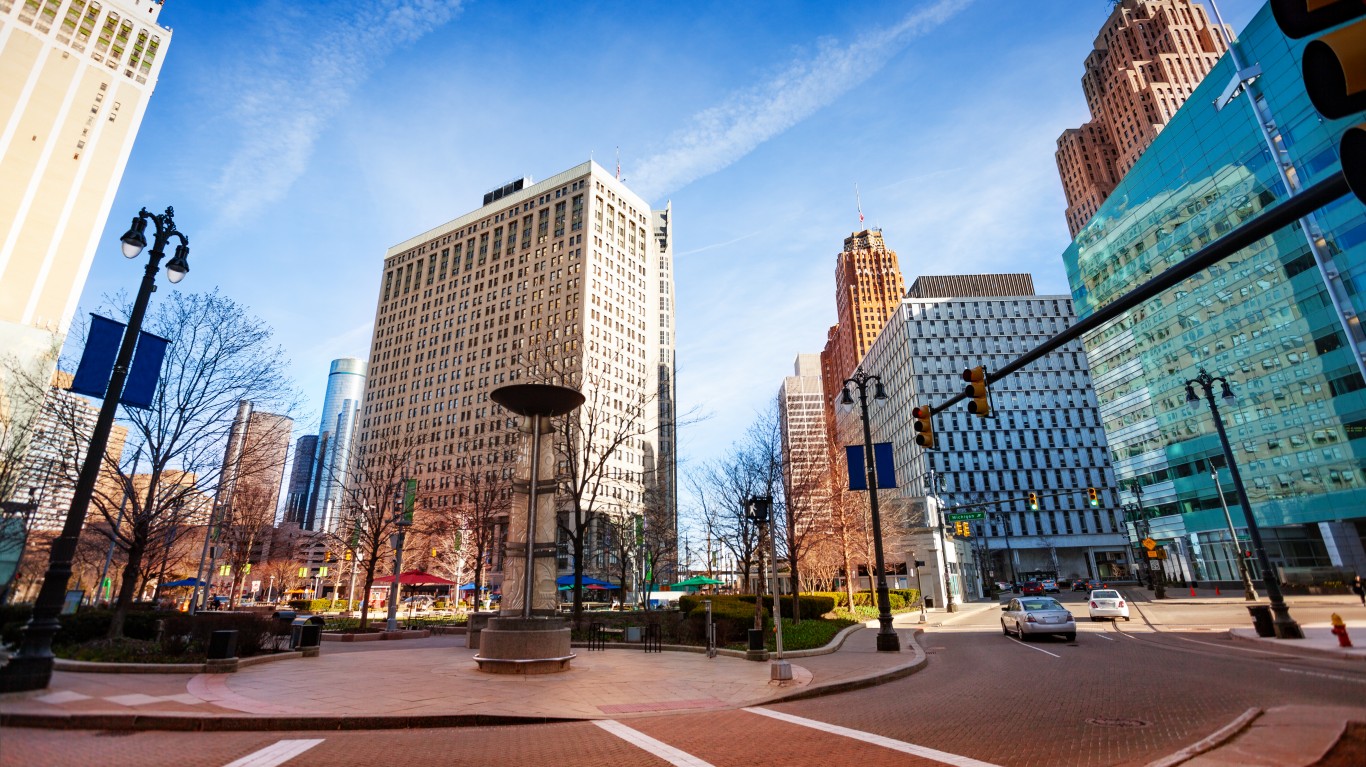
50. Detroit, Michigan
> Population change from 2000: -30.6%
> Current population: 660,628
> Population in 2000: 951,270
[in-text-ad]
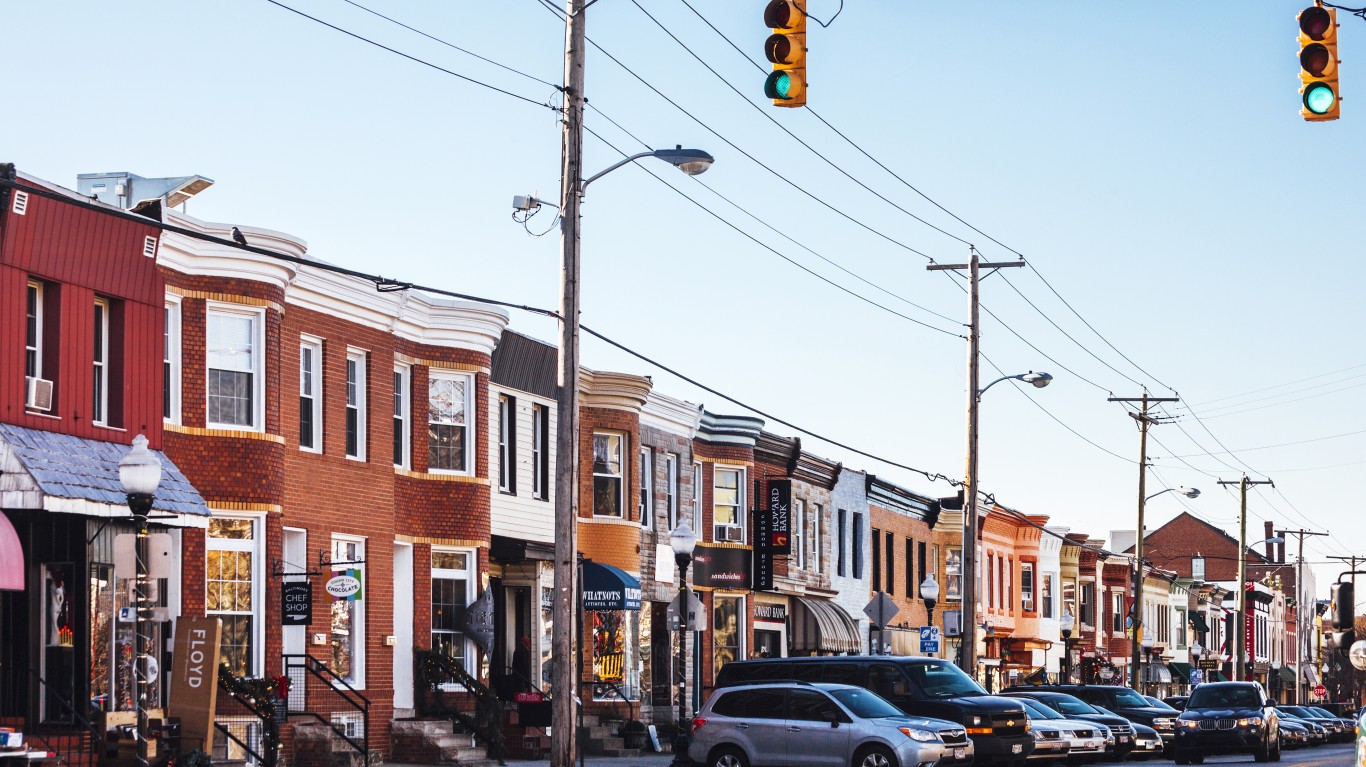
49. Baltimore, Maryland
> Population change from 2000: -6.4%
> Current population: 609,422
> Population in 2000: 651,154

48. Chicago, Illinois
> Population change from 2000: -5.4%
> Current population: 2,740,225
> Population in 2000: 2,895,964

47. Milwaukee, Wisconsin
> Population change from 2000: -1.4%
> Current population: 588,573
> Population in 2000: 596,956
[in-text-ad-2]
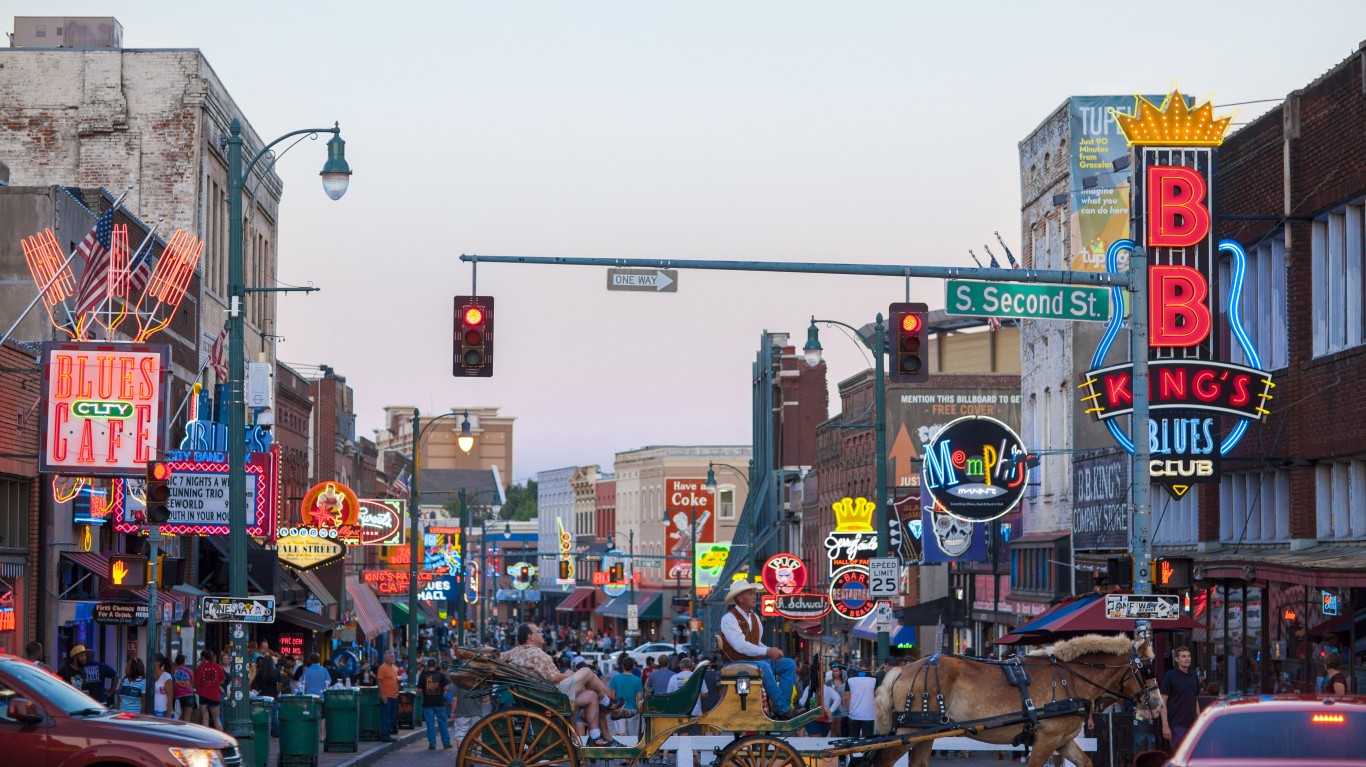
46. Memphis, Tennessee
> Population change from 2000: +0.5%
> Current population: 652,804
> Population in 2000: 649,845
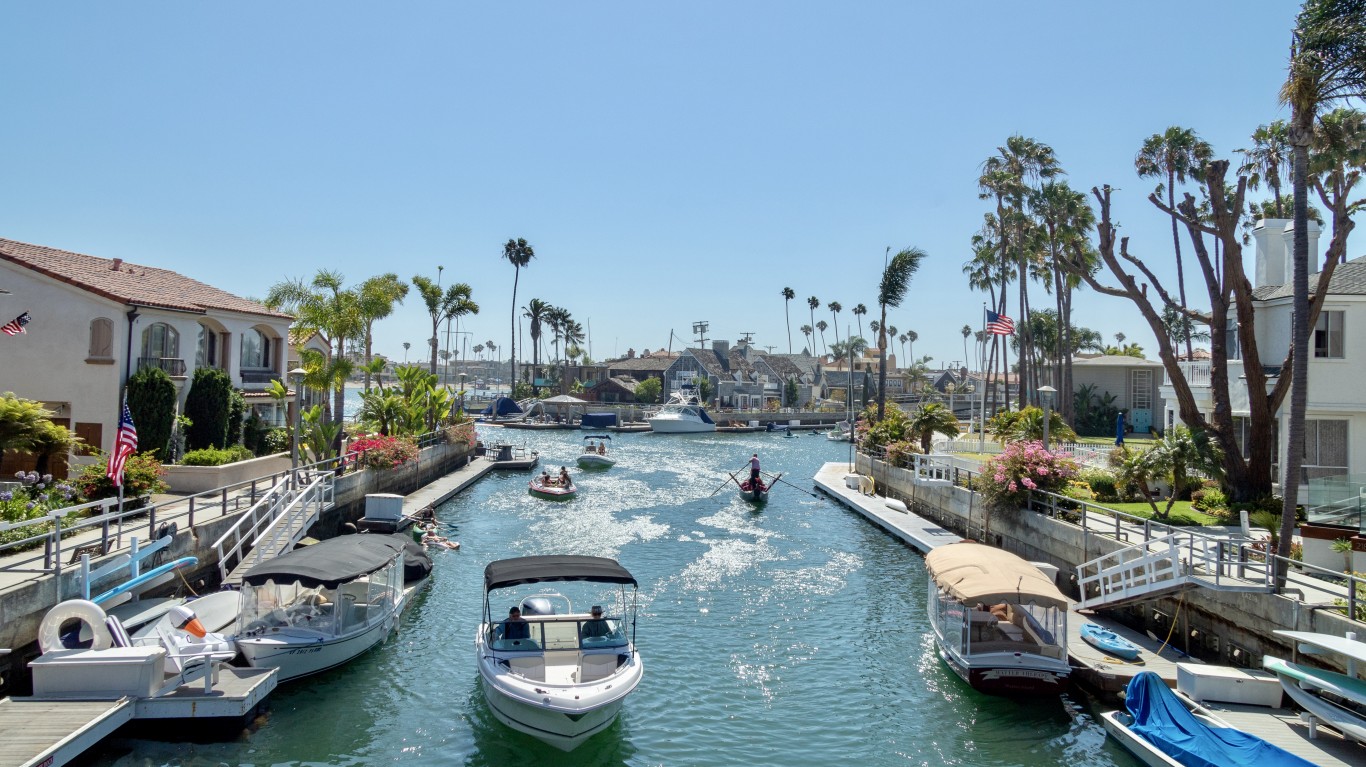
45. Long Beach, California
> Population change from 2000: +2.6%
> Current population: 473,567
> Population in 2000: 461,381
[in-text-ad]

44. Tulsa, Oklahoma
> Population change from 2000: +3.1%
> Current population: 405,327
> Population in 2000: 393,051
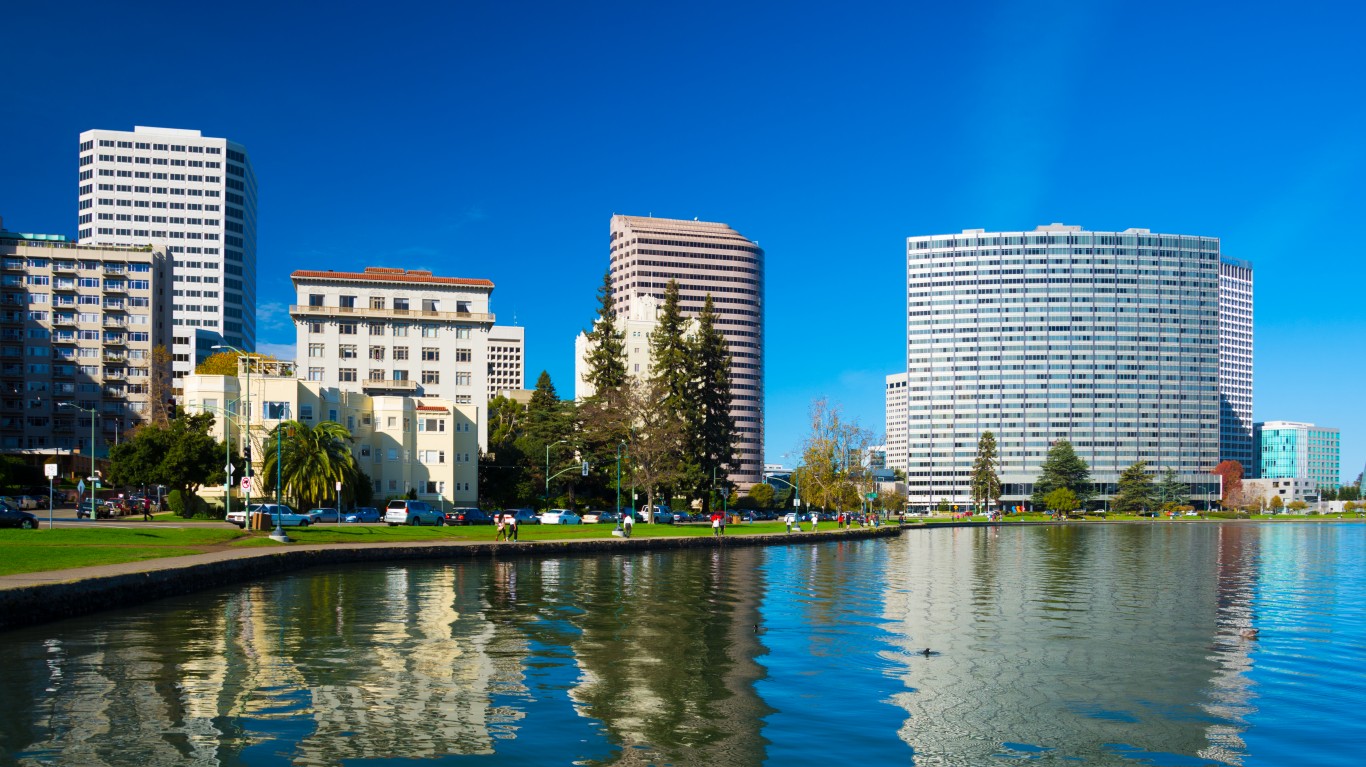
43. Oakland, California
> Population change from 2000: +4.4%
> Current population: 417,040
> Population in 2000: 399,477

42. Louisville, Kentucky
> Population change from 2000: +5.1%
> Current population: 627,770
> Population in 2000: 597,337
[in-text-ad-2]

41. Philadelphia, Pennsylvania
> Population change from 2000: +5.1%
> Current population: 1,595,579
> Population in 2000: 1,517,550

40. New York, New York
> Population change from 2000: +6.2%
> Current population: 8,502,614
> Population in 2000: 8,008,278
[in-text-ad]

39. Virginia Beach, Virginia
> Population change from 2000: +6.6%
> Current population: 453,291
> Population in 2000: 425,257

38. Los Angeles, California
> Population change from 2000: +7.4%
> Current population: 3,967,152
> Population in 2000: 3,694,834
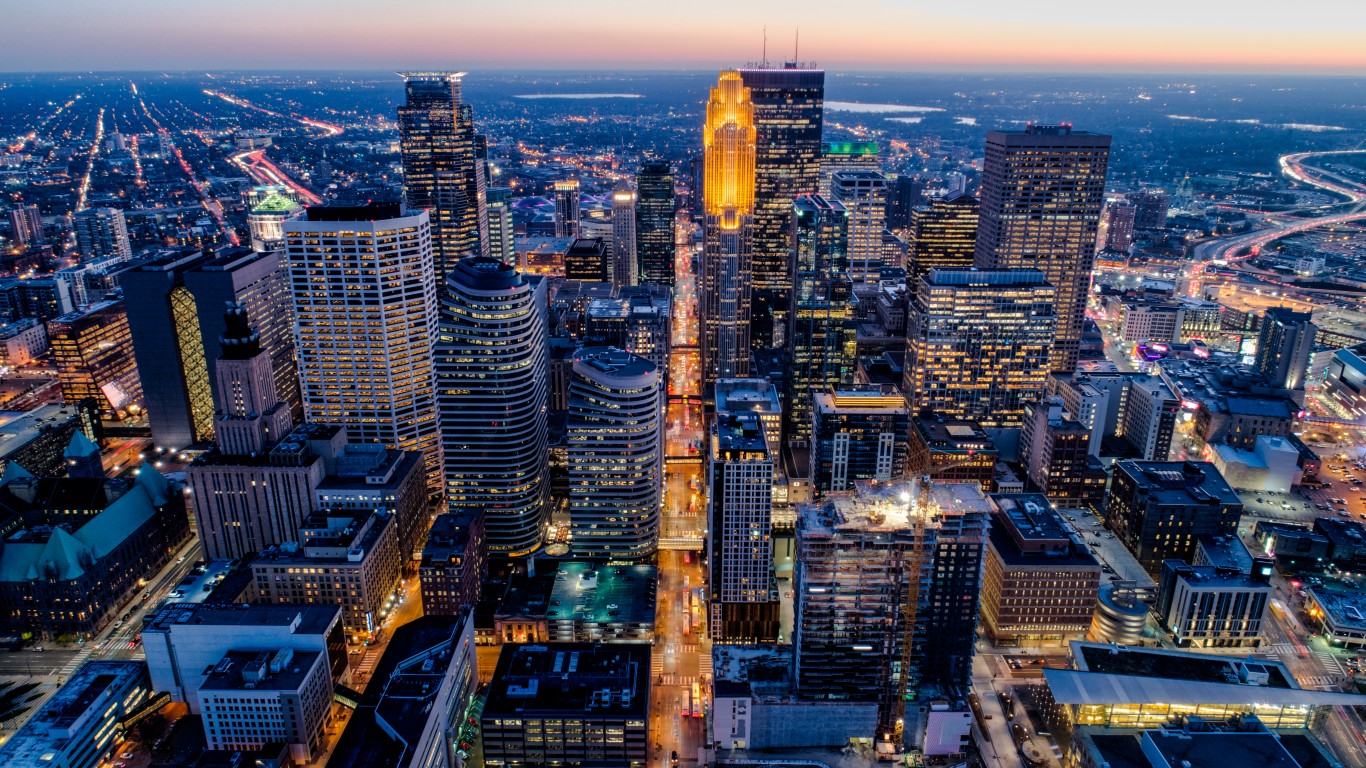
37. Minneapolis, Minnesota
> Population change from 2000: +10.9%
> Current population: 424,175
> Population in 2000: 382,452
[in-text-ad-2]

36. San Jose, California
> Population change from 2000: +13.4%
> Current population: 1,013,400
> Population in 2000: 893,889

35. San Francisco, California
> Population change from 2000: +13.5%
> Current population: 881,791
> Population in 2000: 776,733
[in-text-ad]

34. Honolulu, Hawaii
> Population change from 2000: +13.6%
> Current population: 995,251
> Population in 2000: 875,784
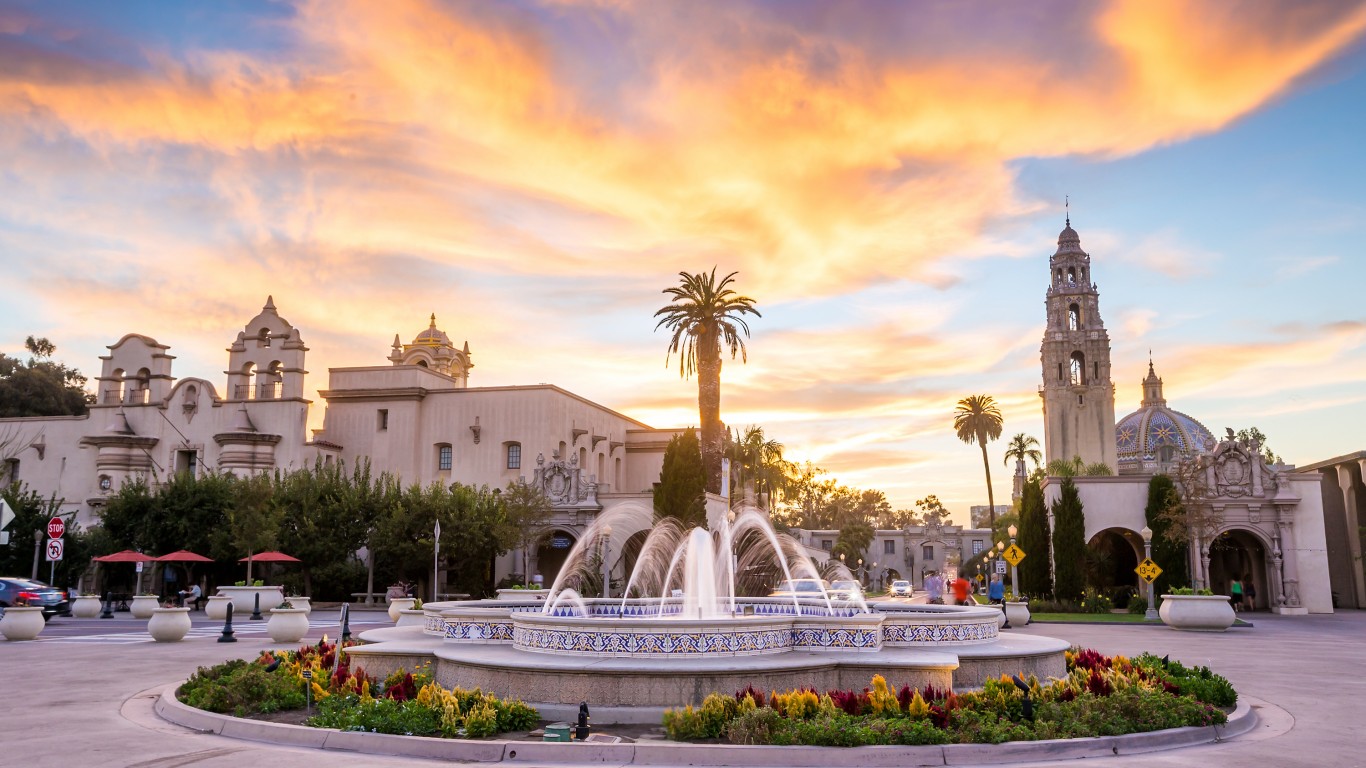
33. San Diego, California
> Population change from 2000: +14.0%
> Current population: 1,394,515
> Population in 2000: 1,223,341
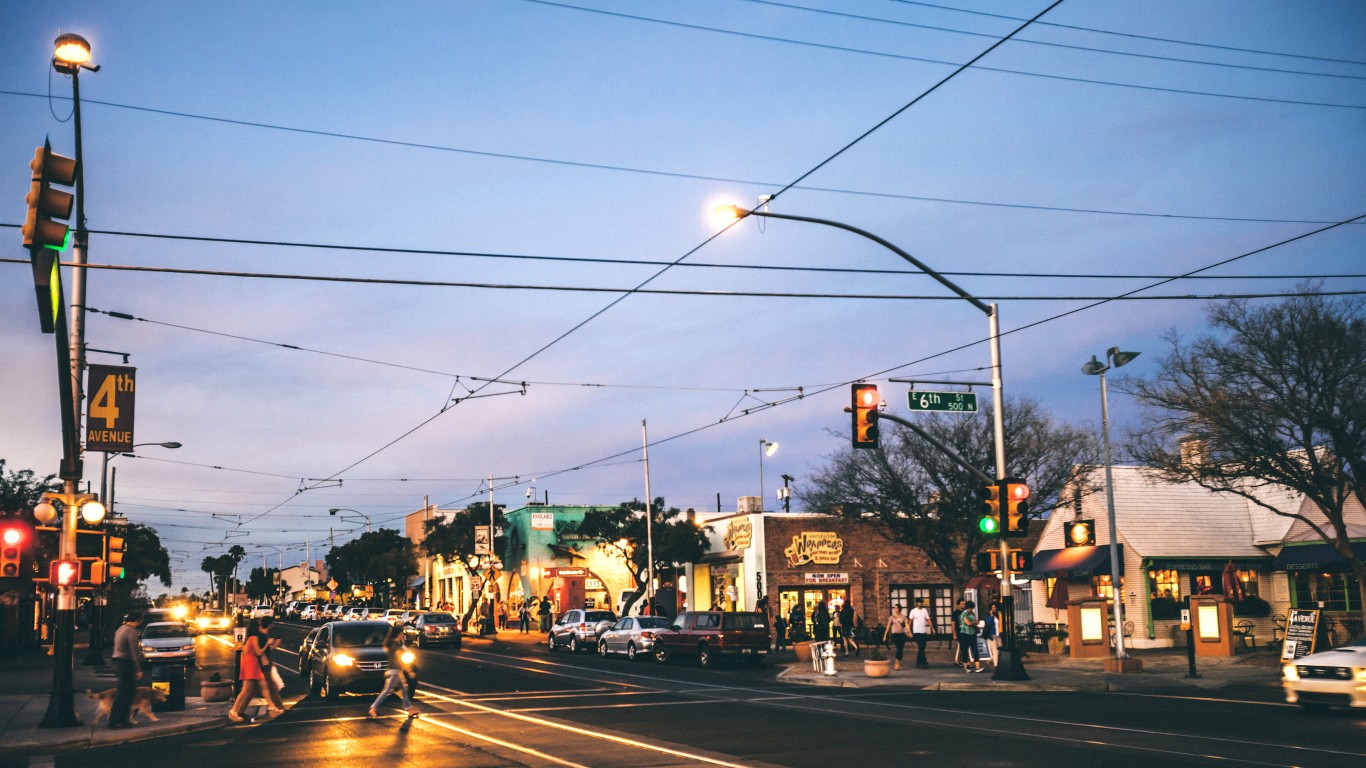
32. Tucson, Arizona
> Population change from 2000: +14.6%
> Current population: 557,827
> Population in 2000: 486,591
[in-text-ad-2]
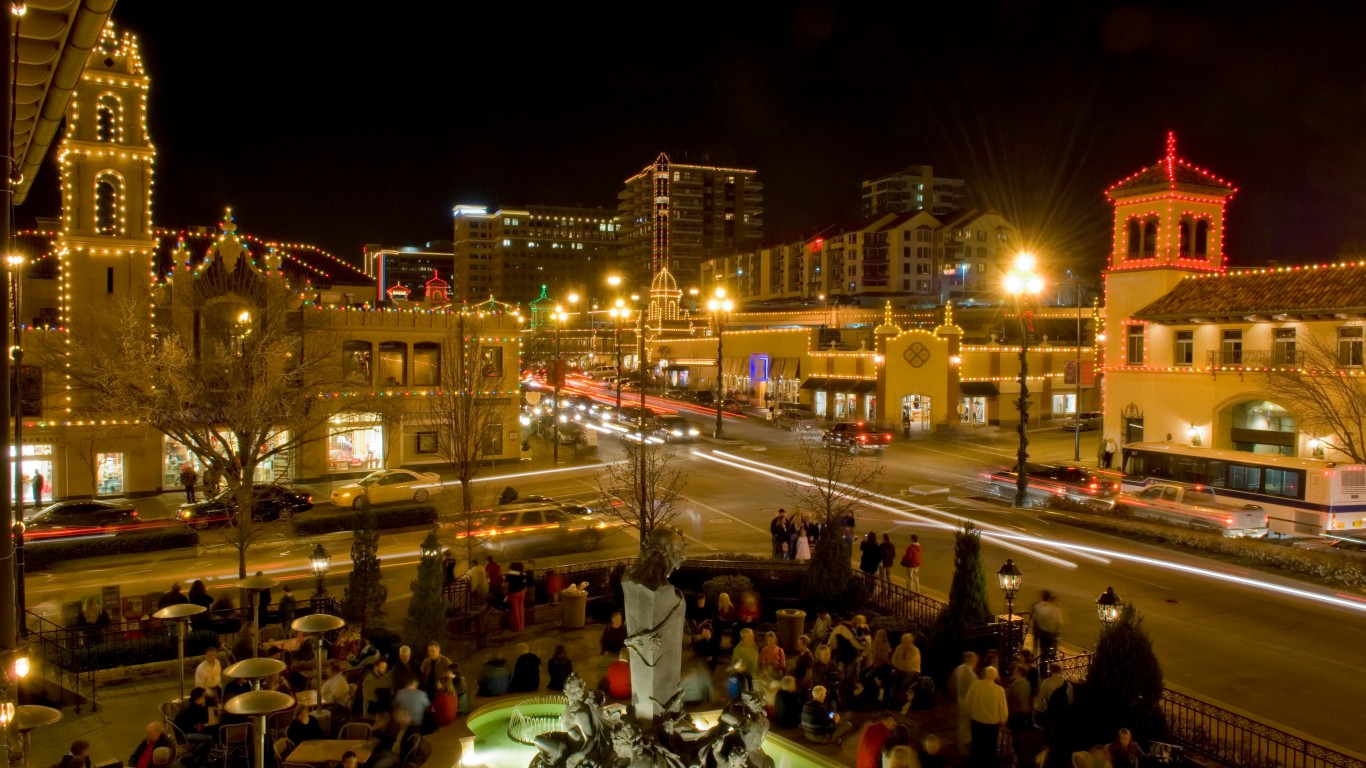
31. Kansas City, Missouri
> Population change from 2000: +15.5%
> Current population: 509,608
> Population in 2000: 441,269
30. Dallas, Texas
> Population change from 2000: +16.1%
> Current population: 1,379,343
> Population in 2000: 1,188,204
[in-text-ad]
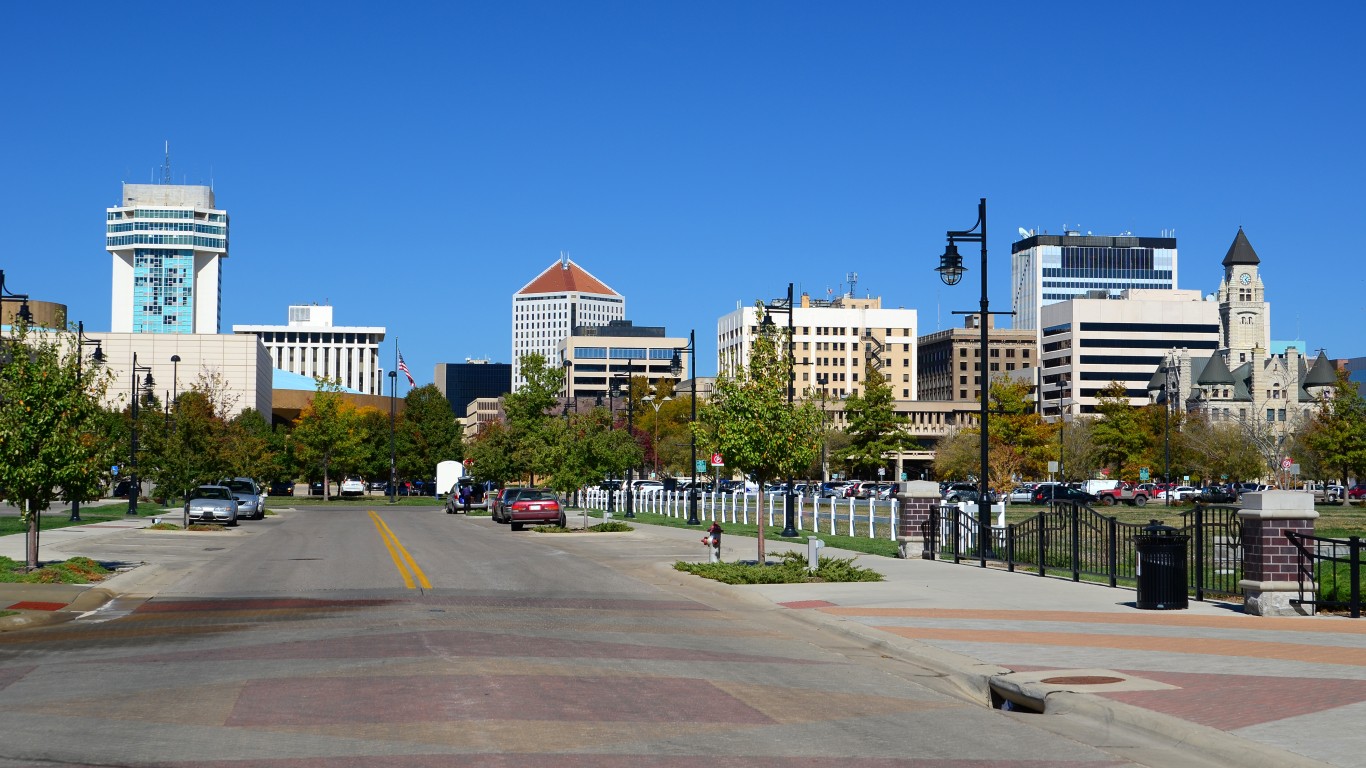
29. Wichita, Kansas
> Population change from 2000: +16.1%
> Current population: 399,411
> Population in 2000: 343,997
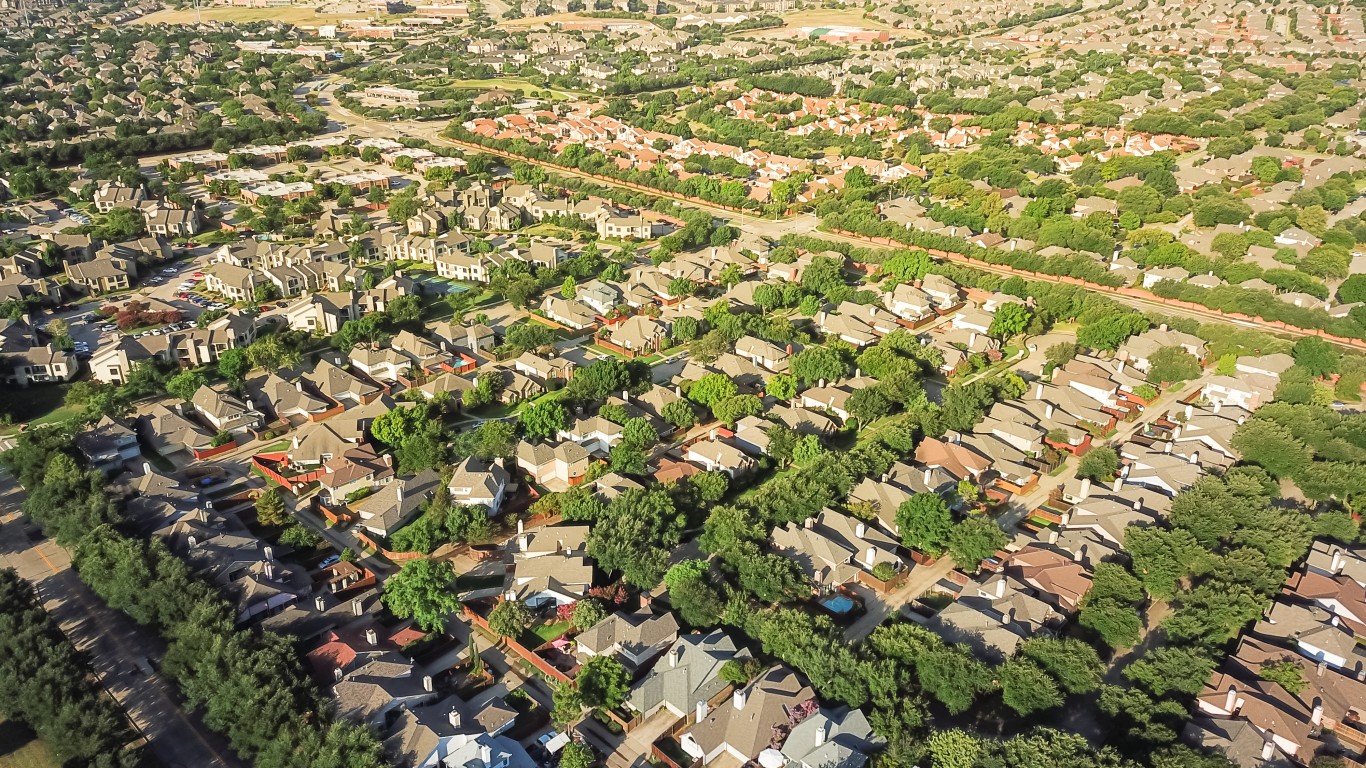
28. Arlington, Texas
> Population change from 2000: +18.2%
> Current population: 393,408
> Population in 2000: 332,695

27. Boston, Massachusetts
> Population change from 2000: +18.7%
> Current population: 699,253
> Population in 2000: 589,141
[in-text-ad-2]

26. Atlanta, Georgia
> Population change from 2000: +21.0%
> Current population: 503,991
> Population in 2000: 416,629

25. Phoenix, Arizona
> Population change from 2000: +23.3%
> Current population: 1,628,812
> Population in 2000: 1,320,994
[in-text-ad]

24. Washington, District of Columbia
> Population change from 2000: +23.4%
> Current population: 706,137
> Population in 2000: 572,059
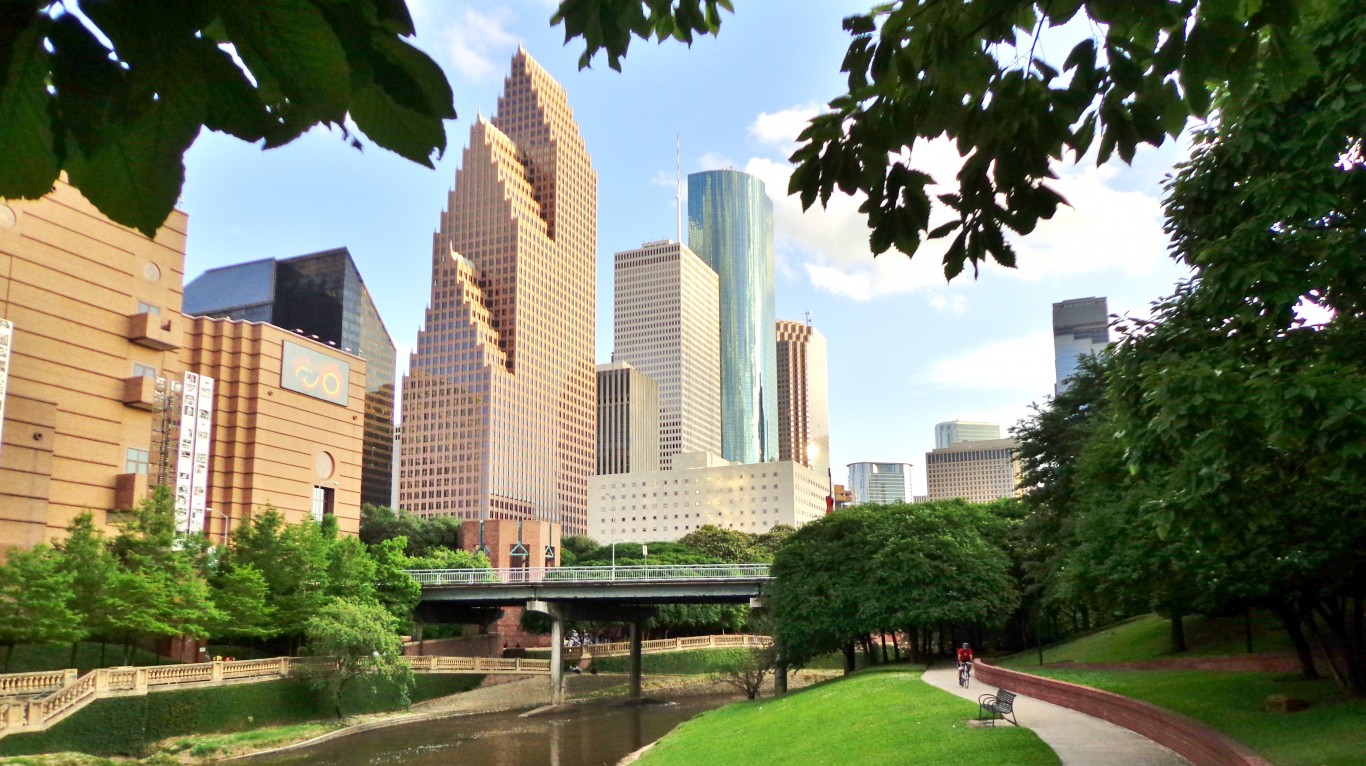
23. Houston, Texas
> Population change from 2000: +23.8%
> Current population: 2,419,240
> Population in 2000: 1,954,848

22. Portland, Oregon
> Population change from 2000: +24.1%
> Current population: 656,300
> Population in 2000: 529,025
[in-text-ad-2]
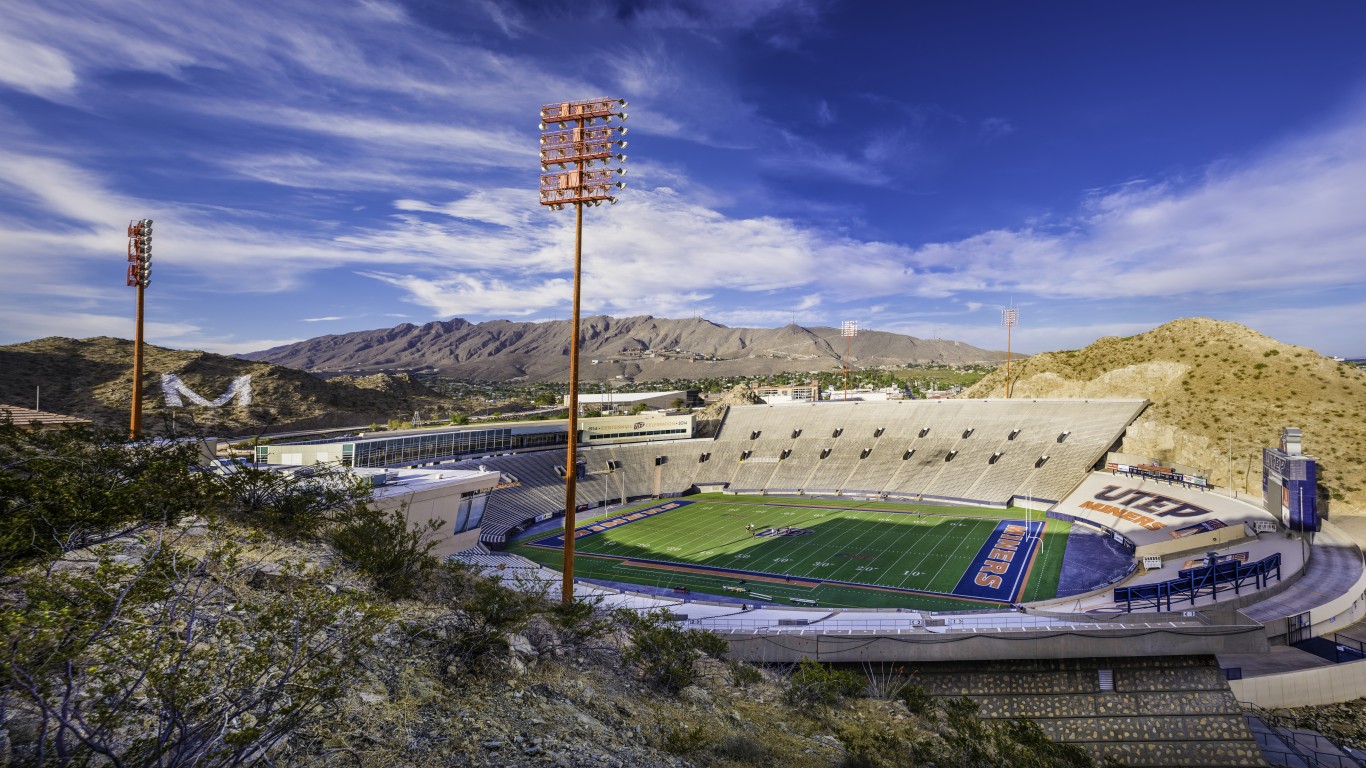
21. El Paso, Texas
> Population change from 2000: +24.4%
> Current population: 702,073
> Population in 2000: 564,280
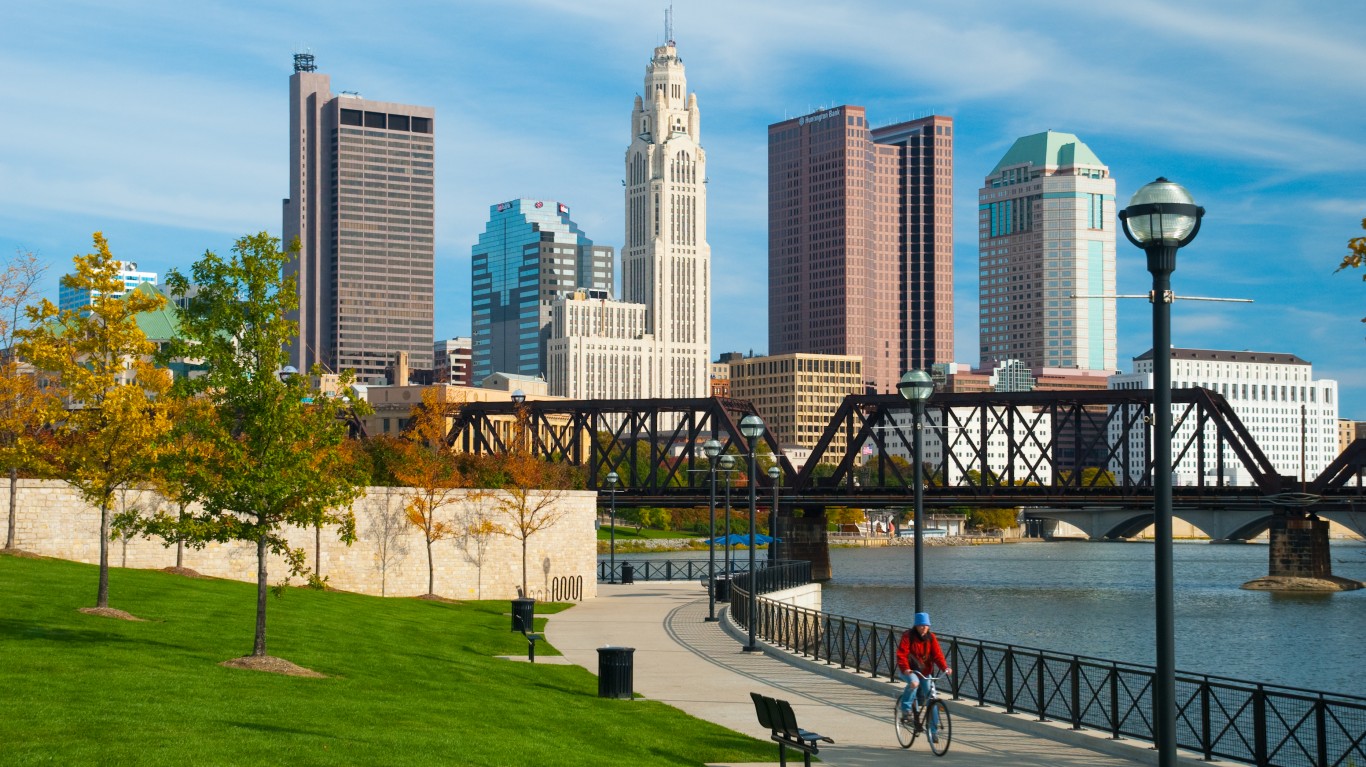
20. Columbus, Ohio
> Population change from 2000: +24.8%
> Current population: 888,145
> Population in 2000: 711,644
[in-text-ad]

19. Fresno, California
> Population change from 2000: +24.8%
> Current population: 533,232
> Population in 2000: 427,224
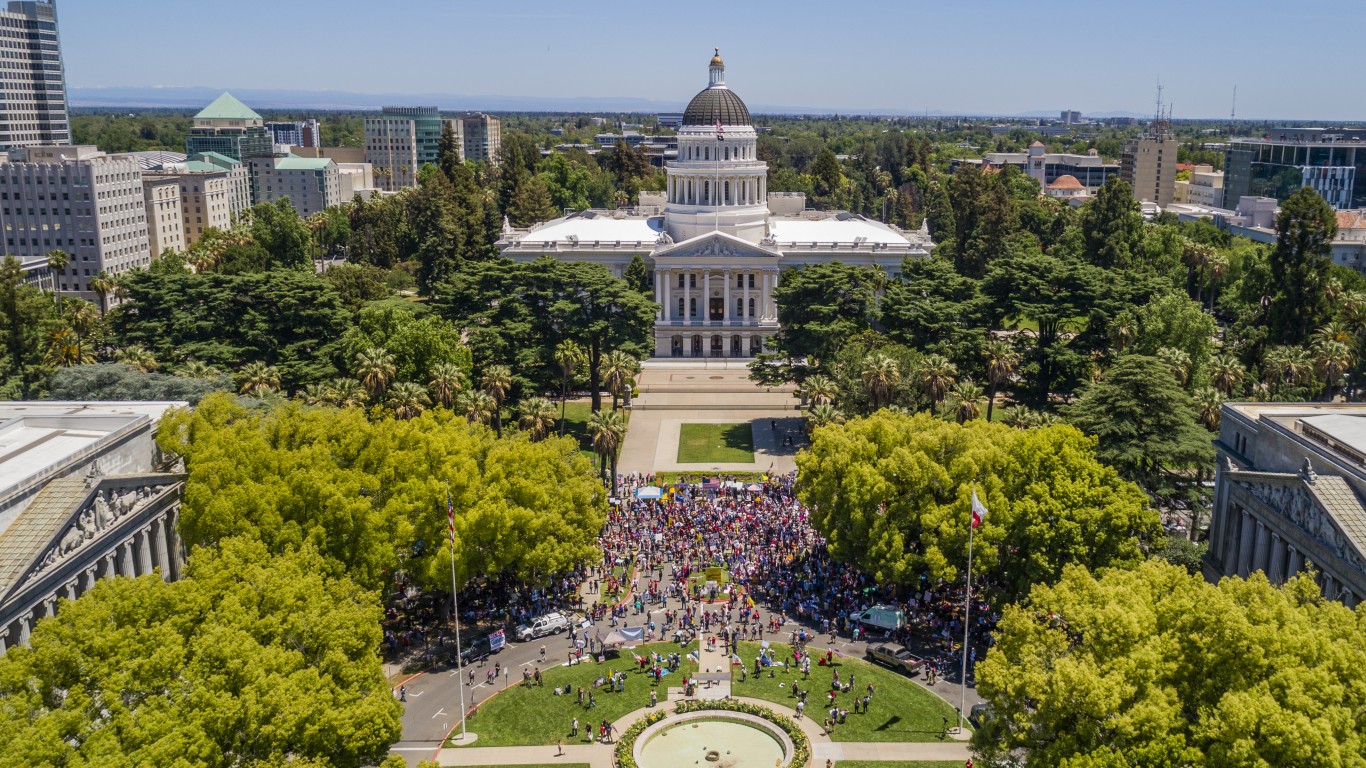
18. Sacramento, California
> Population change from 2000: +24.9%
> Current population: 508,357
> Population in 2000: 407,075

17. Omaha, Nebraska
> Population change from 2000: +27.3%
> Current population: 496,604
> Population in 2000: 390,112
[in-text-ad-2]

16. Miami, Florida
> Population change from 2000: +27.4%
> Current population: 461,859
> Population in 2000: 362,563

15. San Antonio, Texas
> Population change from 2000: +27.4%
> Current population: 1,458,346
> Population in 2000: 1,144,554
[in-text-ad]

14. Jacksonville, Florida
> Population change from 2000: +27.5%
> Current population: 937,821
> Population in 2000: 735,503

13. Albuquerque, New Mexico
> Population change from 2000: +27.5%
> Current population: 572,101
> Population in 2000: 448,627

12. Nashville/Davidson, Tennessee
> Population change from 2000: +27.7%
> Current population: 696,653
> Population in 2000: 545,549
[in-text-ad-2]
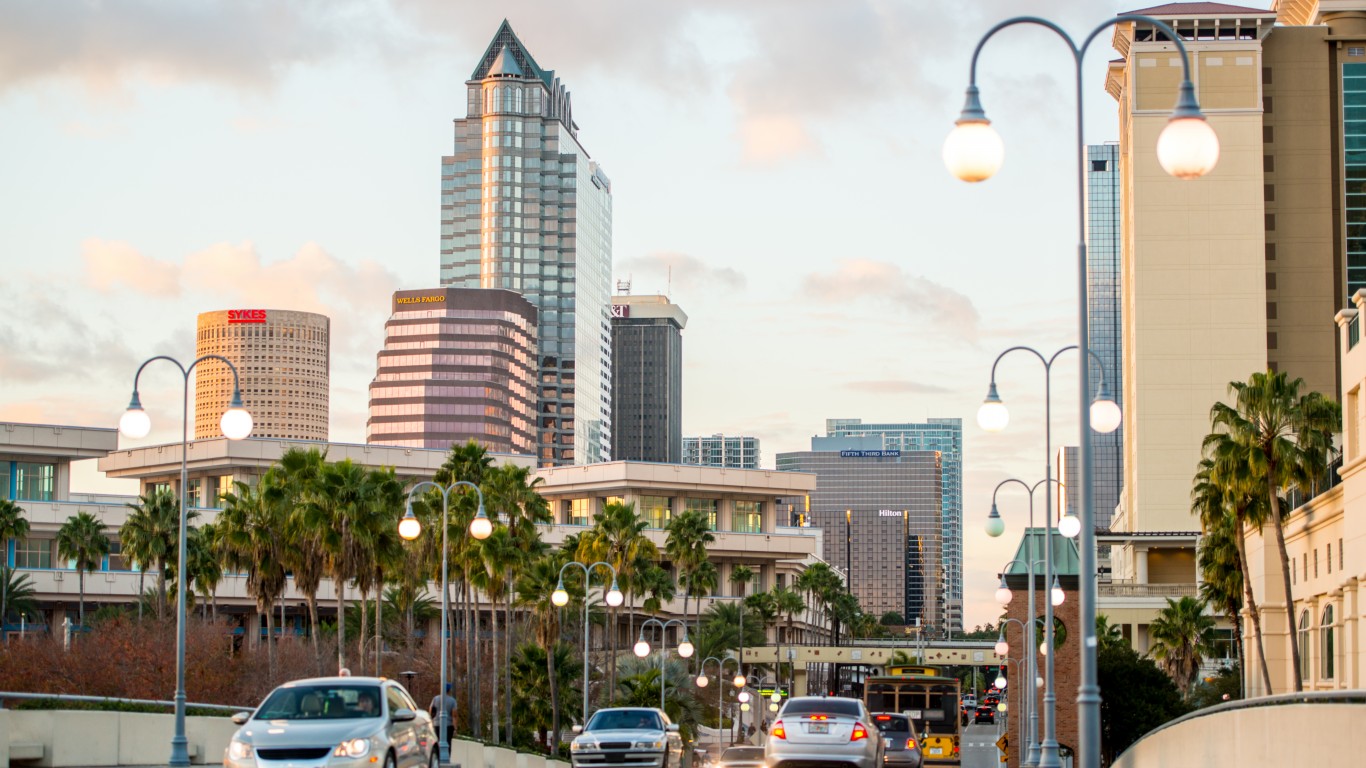
11. Tampa, Florida
> Population change from 2000: +28.8%
> Current population: 390,996
> Population in 2000: 303,512

10. Mesa, Arizona
> Population change from 2000: +29.4%
> Current population: 514,144
> Population in 2000: 397,215
[in-text-ad]

9. Seattle, Washington
> Population change from 2000: +31.4%
> Current population: 740,227
> Population in 2000: 563,375

8. Oklahoma City, Oklahoma
> Population change from 2000: +32.5%
> Current population: 670,553
> Population in 2000: 506,132
7. Denver, Ohio
> Population change from 2000: +33.7%
> Current population: 741,500
> Population in 2000: 554,636
[in-text-ad-2]

6. Colorado Springs, Colorado
> Population change from 2000: +34.7%
> Current population: 485,817
> Population in 2000: 360,798

5. Austin, Texas
> Population change from 2000: +50.1%
> Current population: 985,370
> Population in 2000: 656,302
[in-text-ad]
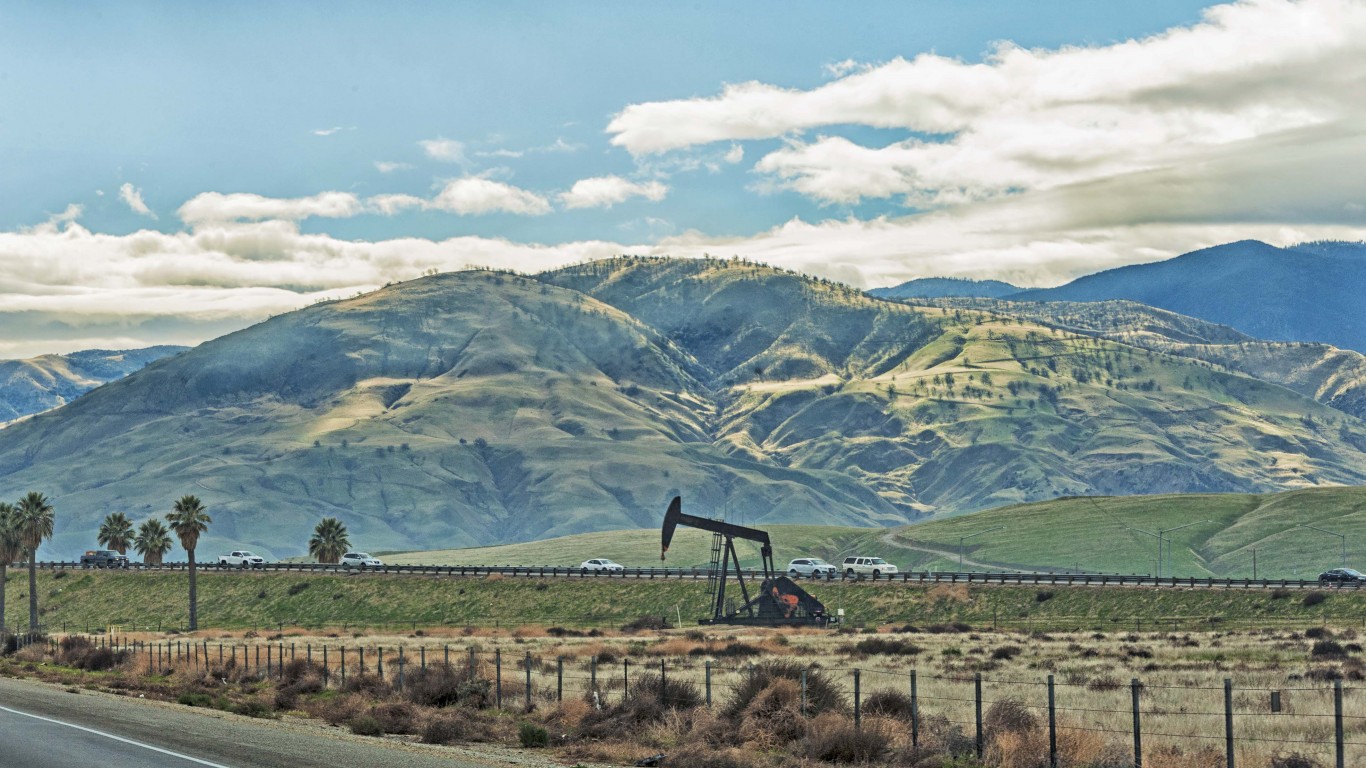
4. Bakersfield, California
> Population change from 2000: +57.2%
> Current population: 388,817
> Population in 2000: 247,385
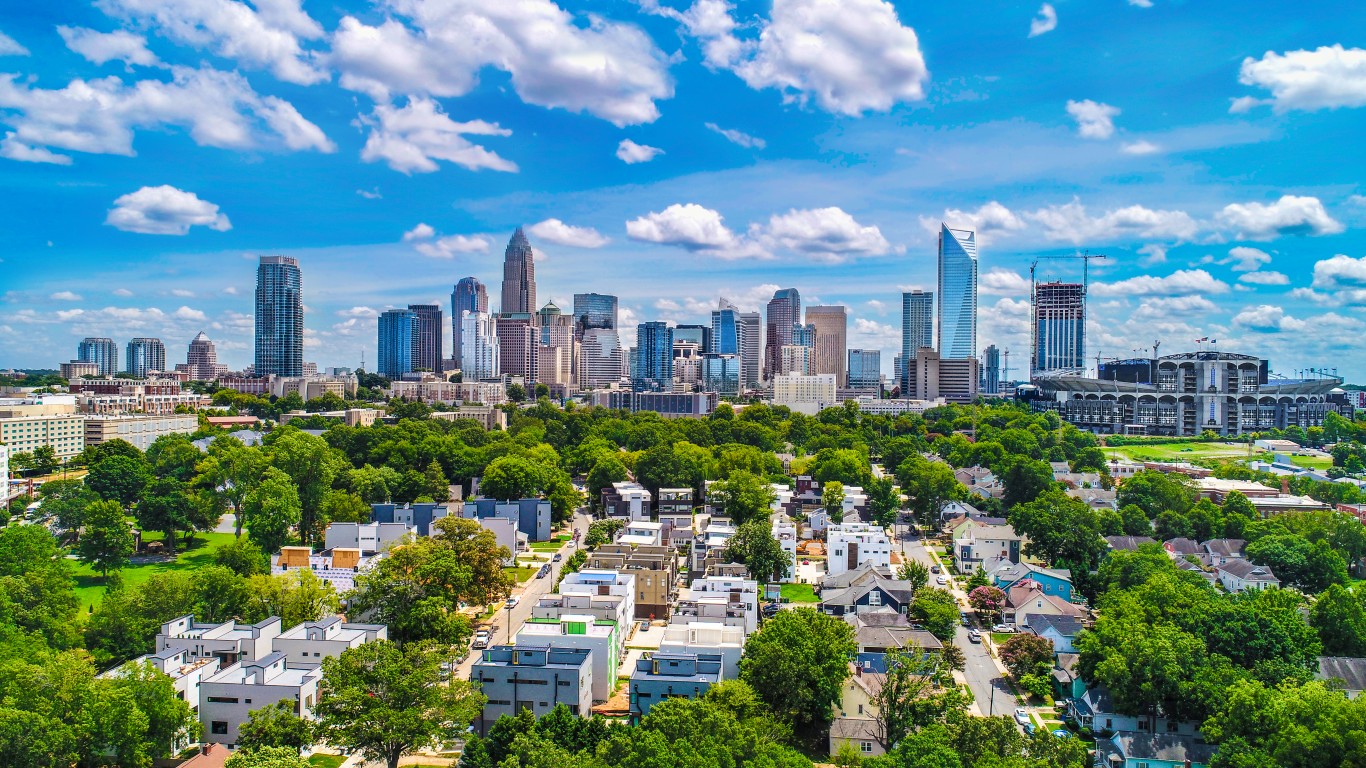
3. Charlotte/Mecklenburg, North Carolina
> Population change from 2000: +60.4%
> Current population: 1,115,617
> Population in 2000: 695,454

2. Fort Worth, Texas
> Population change from 2000: +71.9%
> Current population: 920,349
> Population in 2000: 535,420
[in-text-ad-2]

1. Raleigh, North Carolina
> Population change from 2000: +72.6%
> Current population: 477,476
> Population in 2000: 276,579
Are You Still Paying With a Debit Card?
The average American spends $17,274 on debit cards a year, and it’s a HUGE mistake. First, debit cards don’t have the same fraud protections as credit cards. Once your money is gone, it’s gone. But more importantly you can actually get something back from this spending every time you swipe.
Issuers are handing out wild bonuses right now. With some you can earn up to 5% back on every purchase. That’s like getting a 5% discount on everything you buy!
Our top pick is kind of hard to imagine. Not only does it pay up to 5% back, it also includes a $200 cash back reward in the first six months, a 0% intro APR, and…. $0 annual fee. It’s quite literally free money for any one that uses a card regularly. Click here to learn more!
Flywheel Publishing has partnered with CardRatings to provide coverage of credit card products. Flywheel Publishing and CardRatings may receive a commission from card issuers.
Thank you for reading! Have some feedback for us?
Contact the 24/7 Wall St. editorial team.
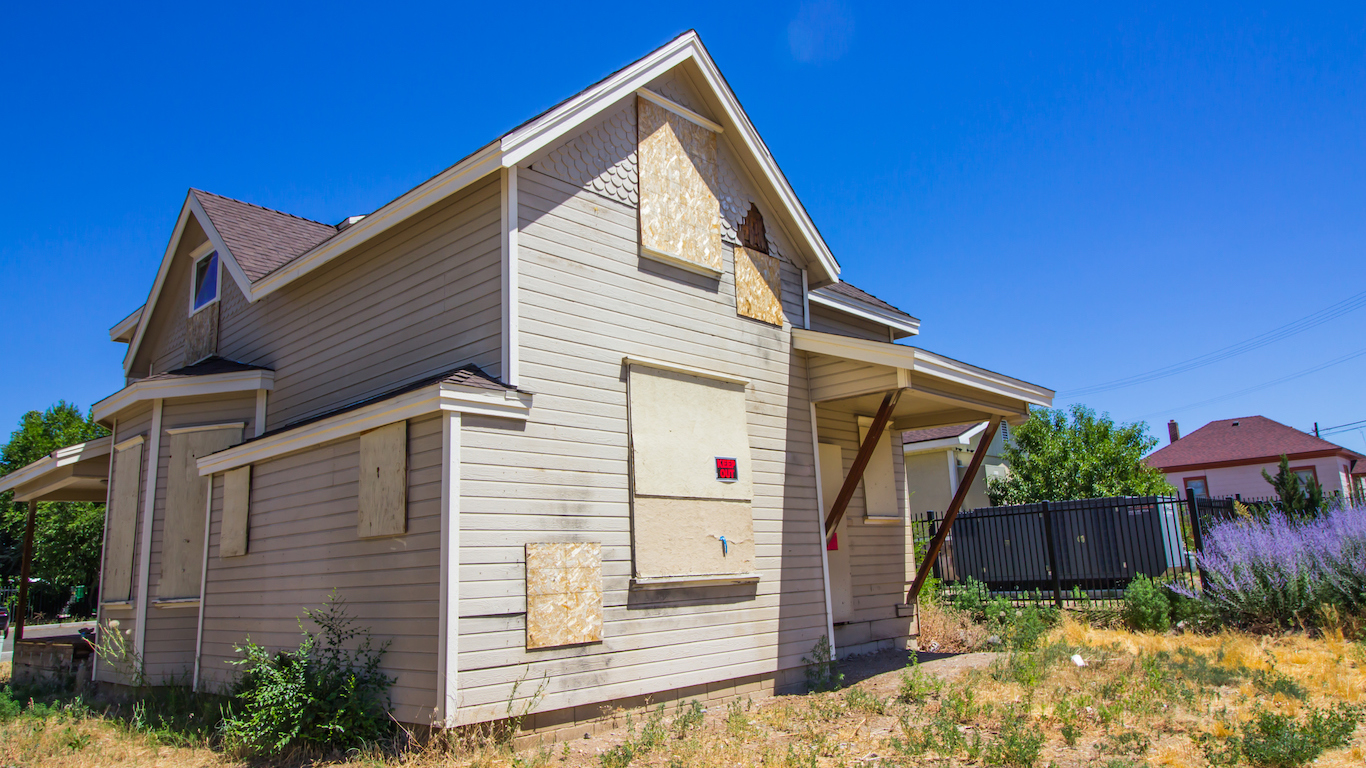 24/7 Wall St.
24/7 Wall St.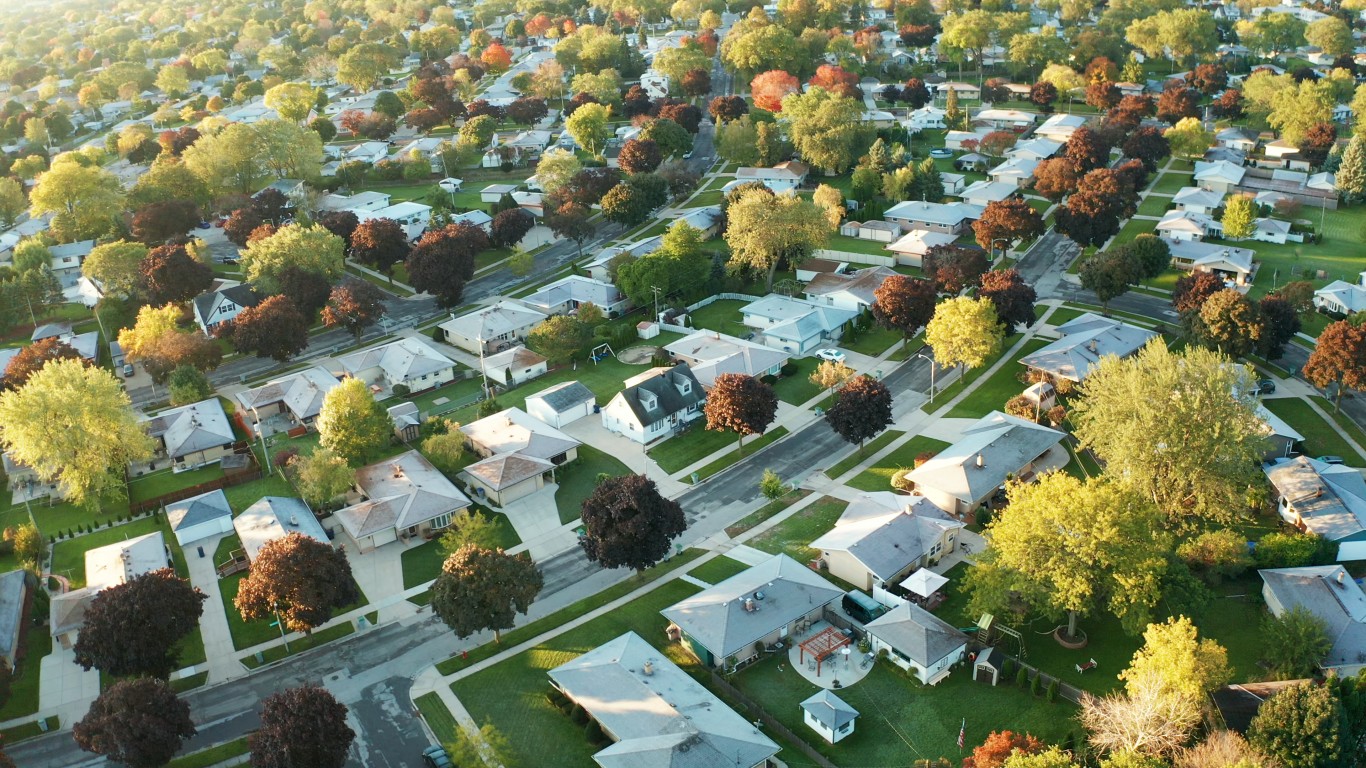 24/7 Wall St.
24/7 Wall St.
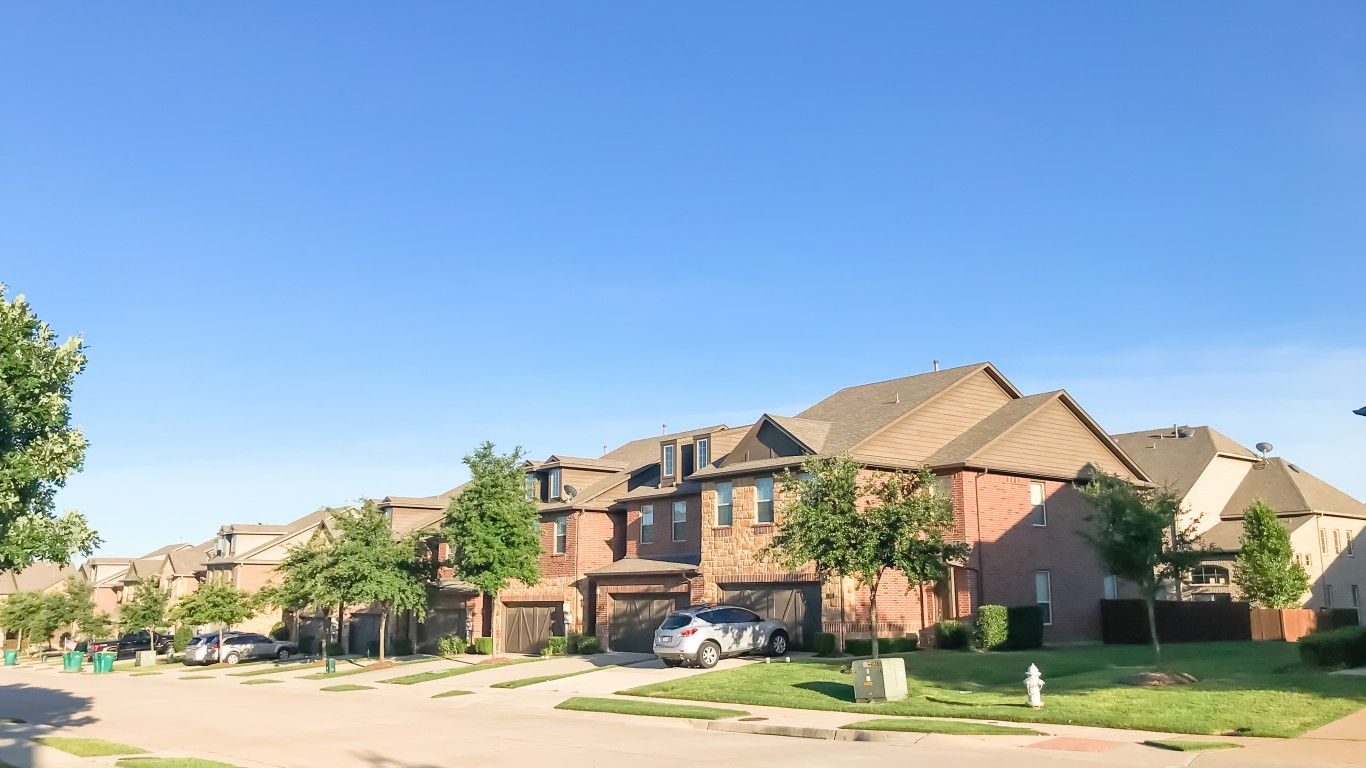 24/7 Wall St.
24/7 Wall St.